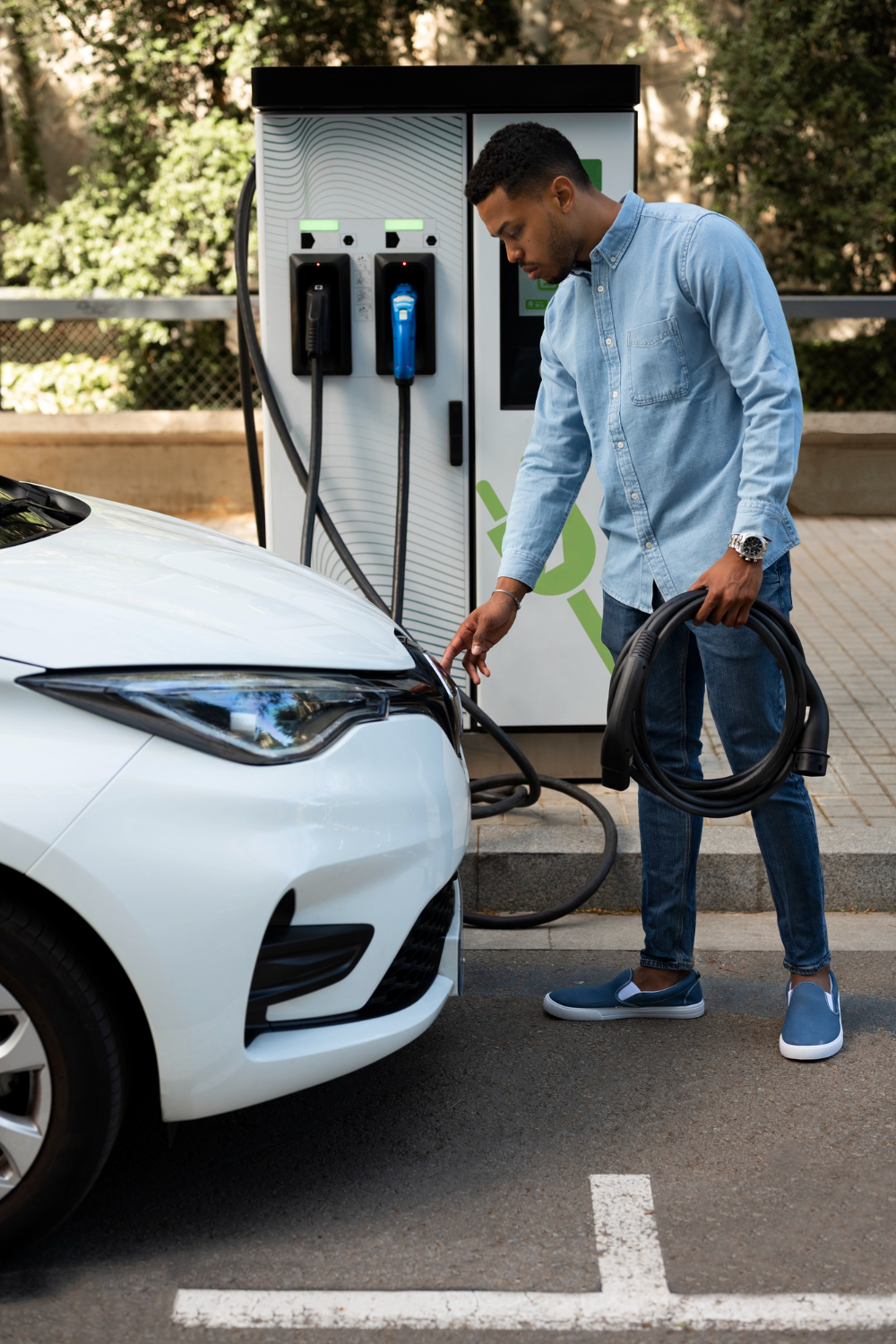Long lines have been forming at gas stations in Ethiopia’s capital, Addis Ababa, amid fuel shortages and a price spike in recent months.
But electric vehicle driver Mikial Belayneh avoids them completely.
“I no longer line up for petrol on the road,” Belayneh, an Addis resident, told CNN. A full charge of his imported Toyota bZ4X – a popular EV in the country – “is more than enough for two days.”
Belayneh, who charges his car at home, is part of rapid transition to EVs in Addis Ababa, a fast-growing city in the horn of Africa at the center of Ethiopia’s goal to hoist millions of people out of poverty.
In addition to the polluting cars and trucks rumbling along the roads, cleaner — and quieter — vehicles are joining the traffic. Electric buses, smaller 15-seat minibuses, cars and motorbikes are popping up on the streets of the capital.
There are around 100,000 EVs in Ethiopia so far.
The Ethiopian government estimates that number will more than quadruple by 2032. That’s largely because the national government took the extraordinary step earlier this year of banning the import of all gas-powered passenger vehicles — becoming the first nation in the world to do so.
It also effectively slashed the customs tax on imported cars: The tax on gas vehicles was up to 200% before they were banned, while the import tax for fully assembled EVs is just 15%, according to the country’s finance ministry.
It’s part of a government-led effort to get more EVs on the streets.
The lower rates are also spurring more local EV manufacturing. Hundreds of the vehicles were assembled by Ethiopia-based Belayneh Kindie Group using parts imported from China. Besufekad Shewaye, manager at the company, told CNN that import tariffs are “almost zero percent” for EV parts that are assembled in Ethiopia.

A rapid shift from gasoline
Ethiopia is leaning hard into EVs in part because importing fuel is expensive, and 96% of the country’s electricity comes from clean hydropower – a dual win for the country’s finances and the environment.
“They really are a clean-energy country,” said Jane Akumu, a Kenya-based program officer at the United Nations Environment Programme. “Why are you importing oil while you have local electricity that you can actually use for your vehicles?”
The government recognized it had a bountiful renewable energy source in the country when it started shifting towards EVs, said Assefa Hadis Hagos, a transportation adviser for the Ethiopian Ministry of Transport and Logistics.
Yet the total ban on gas-powered car imports, passed in January, took many in the region by surprise. “We didn’t know that the government was going to fully back a total ban,” Akumu said.
Ethiopia, which has for years been ruled by a one-party authoritarian government, has shown it can quickly implement environmental policies that would likely take longer in more democratic nations. In the early 2000s, the nation moved rapidly to ban inefficient and dangerous leaded gasoline.
“Other countries require more consultative process, more participation,” said Akumu, who also spearheaded the effort to eradicate leaded gasoline in Africa.
The number of cars on the road in Ethiopia is still quite low, about 1.2 million in total — or one car per 1,000 people.
In the US, more than 91% of Americans own at least one car. In Africa’s most populous of country Nigeria, it’s 11.8 million cars total, or about 54 cars per 1,000 people. The Ethiopian government had kept car ownership rates low with its dramatically high taxes on gas-powered vehicles that cost consumers up to three times the value of car imports — part of an effort to get more people to use public transportation.
Even though the government has reduced or eliminated some of the taxes for imported EVs, buying an electric car is still expensive. “In terms of who is buying EVs, it’s definitely those in the high-income groups,” said Iman Abubaker, who is based in Ethiopia and works on sustainable transportation for the World Resources Institute, a global nonprofit organization.
For this reason, Abubaker’s group and others are working to push the Ethiopian government and others around the continent to invest more in electric buses and public transport, so the efficient vehicles can be used by people of all income levels.
Despite the cost, Ethiopia’s vehicle fleet has seen a gradual but sustained rise in the number of EVs displacing combustion engine cars. Within two years of the country’s 10-year goal to bring in more than 100,000 EVs — started in 2022 — EVs already account for nearly 10% of its vehicles, according to CleanTechnica.
Ethiopia’s government “feels good” about the pace of the transition, Hagos, the transportation advisor, told CNN. He added the government has a “commitment” to reducing climate and environmental pollution from gas cars.
source: cnn.com

